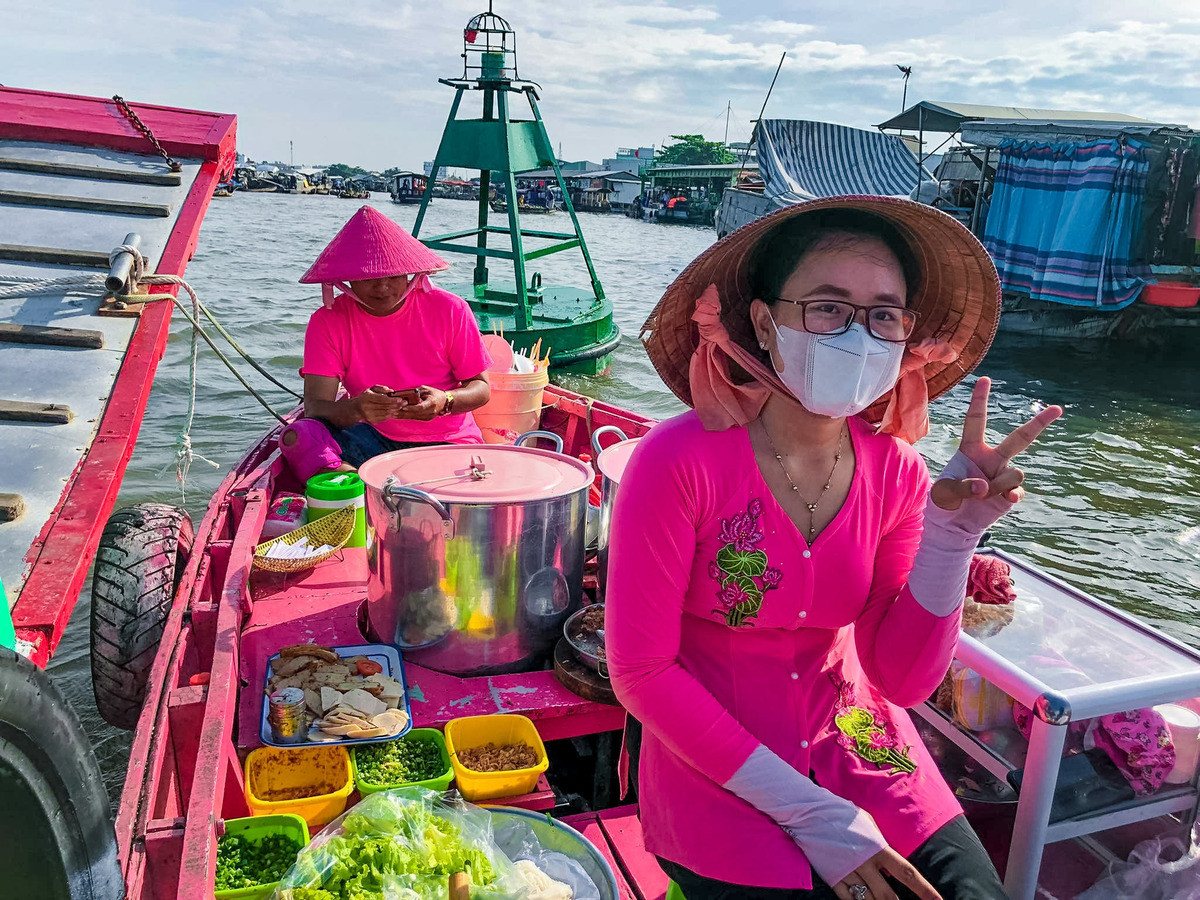A workshop titled "Do something to save floating markets from sinking" was held recently within the framework of "The stories of rivers", a competition organized by VietNamNet.

Doan Huu Duc from Amcham Vietnam noted that floating markets are operating like "zombies", meaning that they do not exist in a natural way. Roads are built along dykes, making it more difficult for floating markets to exist.
Cai Rang Floating Market in Can Tho City, recognized as a national intangible cultural heritage in 2016, is gradually sinking. There are now only 20 boats in the waters. They exist with money from the city’s budget.
Nghiem Ba Hung from Peapros said that floating markets, a special cultural feature of the Mekong Delta, are in bad condition.
In the past, floating markets were set up for merchants and people, who sold and exchanged farm produce at the markets. Nowadays, floating markets mostly serve the tourism industry. The old way of arranging floating markets is no longer suited to modern times.
Floating markets are imbued with regional culture. The cultural value of the markets is fading away. So, a question has been raised that whether Vietnam should restore floating markets or let them die peacefully.
Le Kien Thanh, a businessman, said that floating markets cause pollution. The boats gathering at the same river sections may look beautiful, but if people continue to live on that boats, their lives will be tough. Sick people cannot go to hospital, and children cannot go to school.
“So, we should think about whether to keep floating markets? If they disappear, this means that people won’t need the markets anymore and they want to have a more stable life,” he commented.
Duong Duc Minh, deputy head of the Economics and Tourism Institute, said that floating markets should be revived, because they exist in eight out of 13 cities or provinces in Mekong Delta.
Floating markets were born from the intelligence of Vietnamese merchants living on land. They exist among the 28,000 kilometers of canals and arroyos, including 13,000 kilometers of waterways used for transport in the Mekong River Delta.
Minh noted that if travelers go to Hanoi, they also visit Ha Long or Sa Pa, and other places only if they have free time. Similarly, if they visit Da Nang, they travel to Hue and Hoi An. If they go to HCM City, they visit Cu Chi Tunnels or the Mekong Delta.
Du Ngoan Viet Phan Xuan Anh, the investor of a project on restoring Tan Phong Floating Market, said: “I vow to restore the floating market at any cost."
However, he said restoring floating markets doesn’t mean just gathering some boats and displaying some fruit on the boats.
Phan Van Giau, director of Vinh Long Department of Culture, Sports and Tourism, noted the development of floating markets should be associated with economic development, especially tourism.
Giau said that it is difficult to have floating markets with the atmosphere of the olden times. A famous floating market in the province called Tra On can only partly be revived, on the edge of the river.
He said that all of the localities want to conserve floating markets along with developing tourism. They want people to understand how agricultural production and trading of goods in the past was done by the locals.
Minh Anh - Tuan Kiet - Nguyen Hue